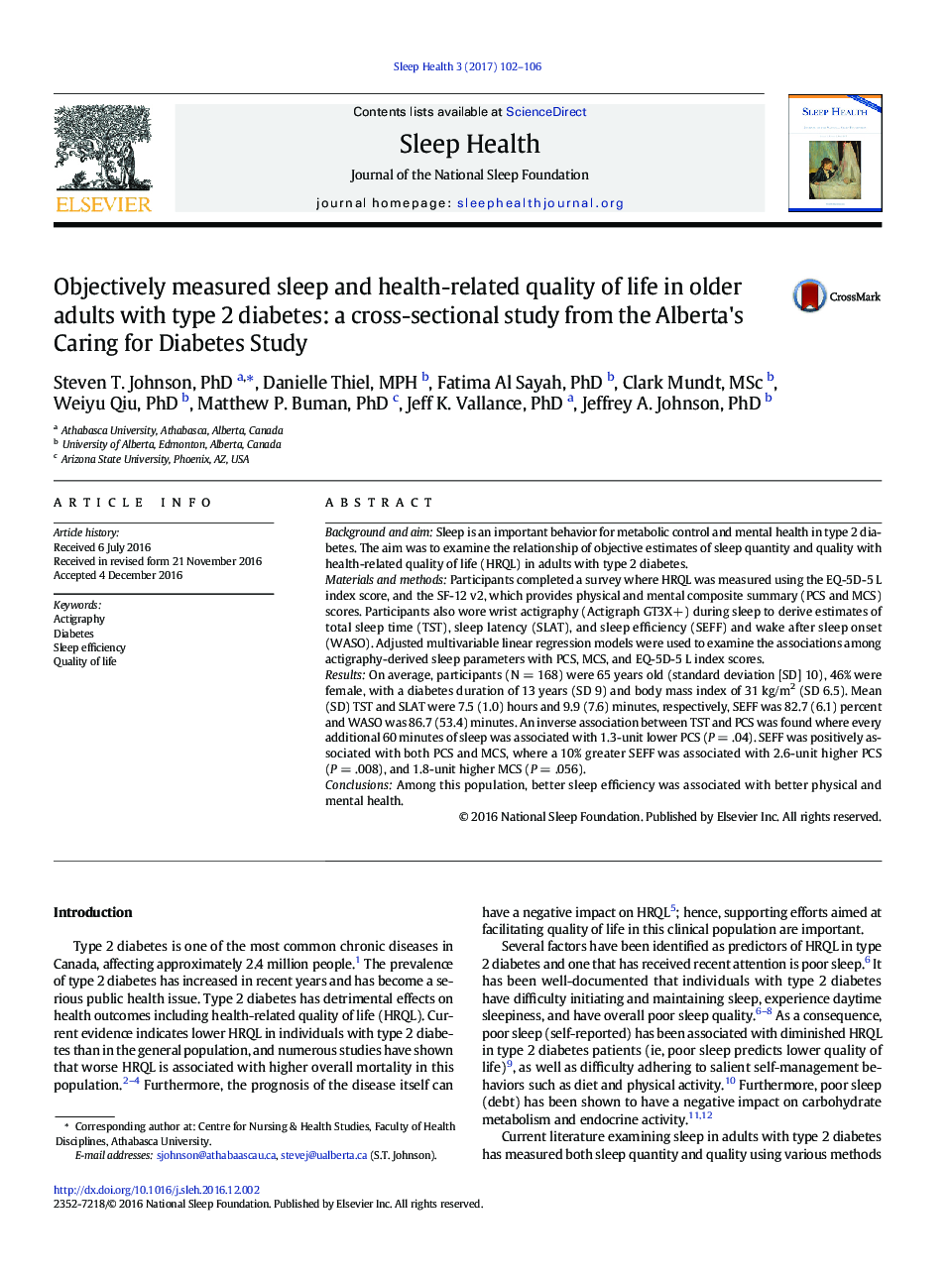| Article ID | Journal | Published Year | Pages | File Type |
|---|---|---|---|---|
| 5039515 | Sleep Health | 2017 | 5 Pages |
Background and aimSleep is an important behavior for metabolic control and mental health in type 2 diabetes. The aim was to examine the relationship of objective estimates of sleep quantity and quality with health-related quality of life (HRQL) in adults with type 2 diabetes.Materials and methodsParticipants completed a survey where HRQL was measured using the EQ-5D-5 L index score, and the SF-12 v2, which provides physical and mental composite summary (PCS and MCS) scores. Participants also wore wrist actigraphy (Actigraph GT3X+) during sleep to derive estimates of total sleep time (TST), sleep latency (SLAT), and sleep efficiency (SEFF) and wake after sleep onset (WASO). Adjusted multivariable linear regression models were used to examine the associations among actigraphy-derived sleep parameters with PCS, MCS, and EQ-5D-5 L index scores.ResultsOn average, participants (NÂ =Â 168) were 65 years old (standard deviation [SD] 10), 46% were female, with a diabetes duration of 13 years (SD 9) and body mass index of 31 kg/m2 (SD 6.5). Mean (SD) TST and SLAT were 7.5 (1.0) hours and 9.9 (7.6) minutes, respectively, SEFF was 82.7 (6.1) percent and WASO was 86.7 (53.4) minutes. An inverse association between TST and PCS was found where every additional 60 minutes of sleep was associated with 1.3-unit lower PCS (PÂ =Â .04). SEFF was positively associated with both PCS and MCS, where a 10% greater SEFF was associated with 2.6-unit higher PCS (PÂ =Â .008), and 1.8-unit higher MCS (PÂ =Â .056).ConclusionsAmong this population, better sleep efficiency was associated with better physical and mental health.
